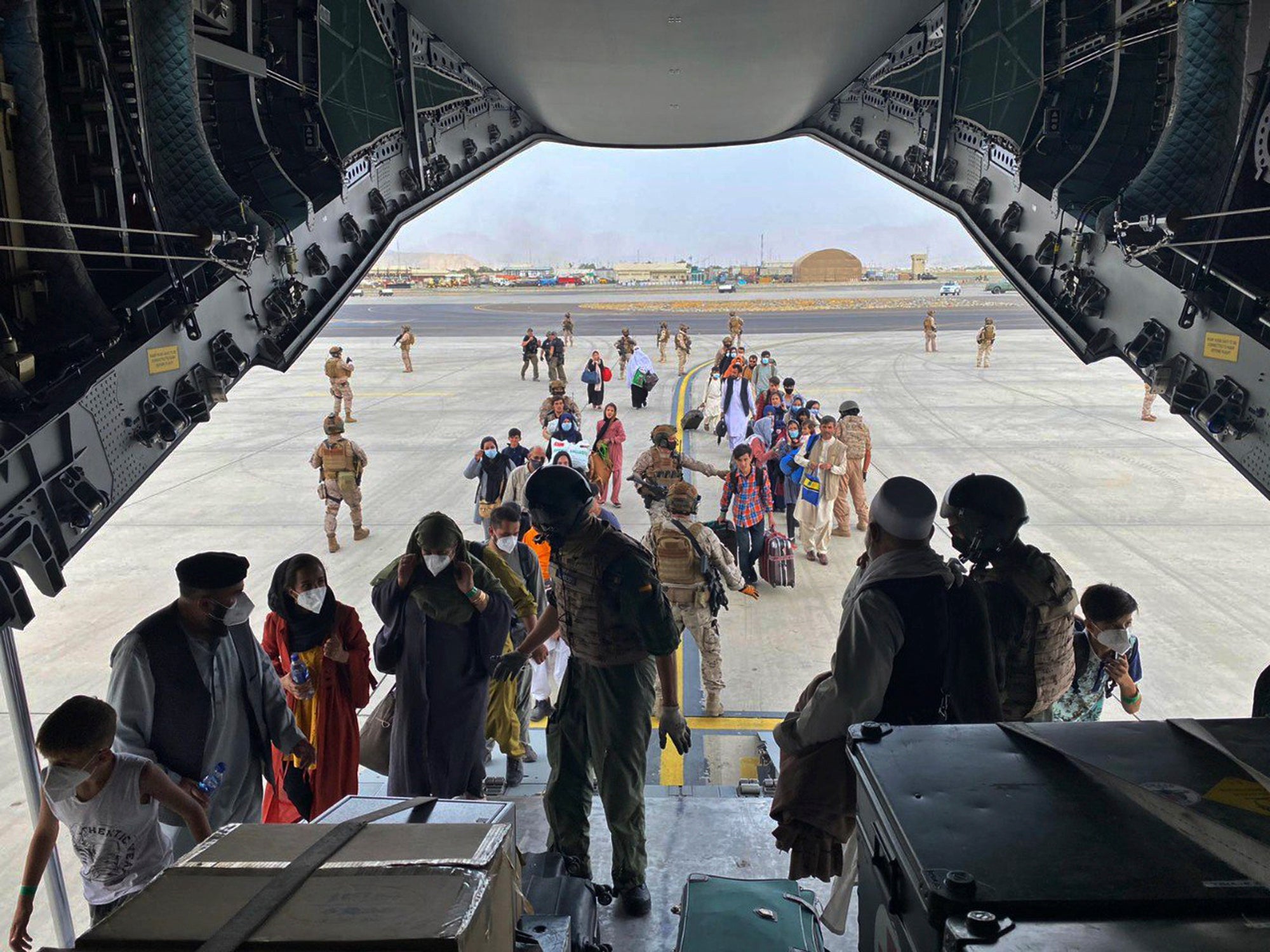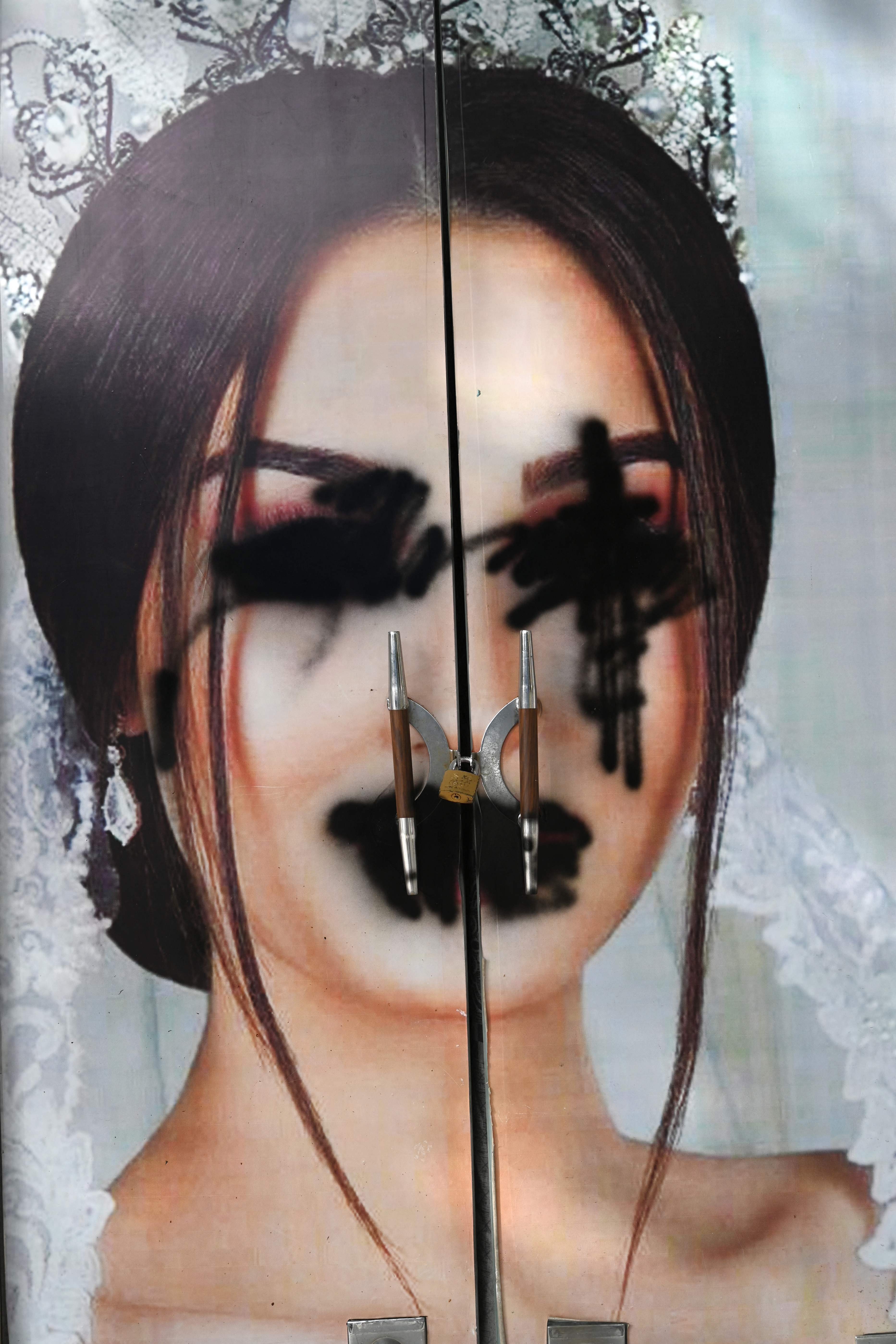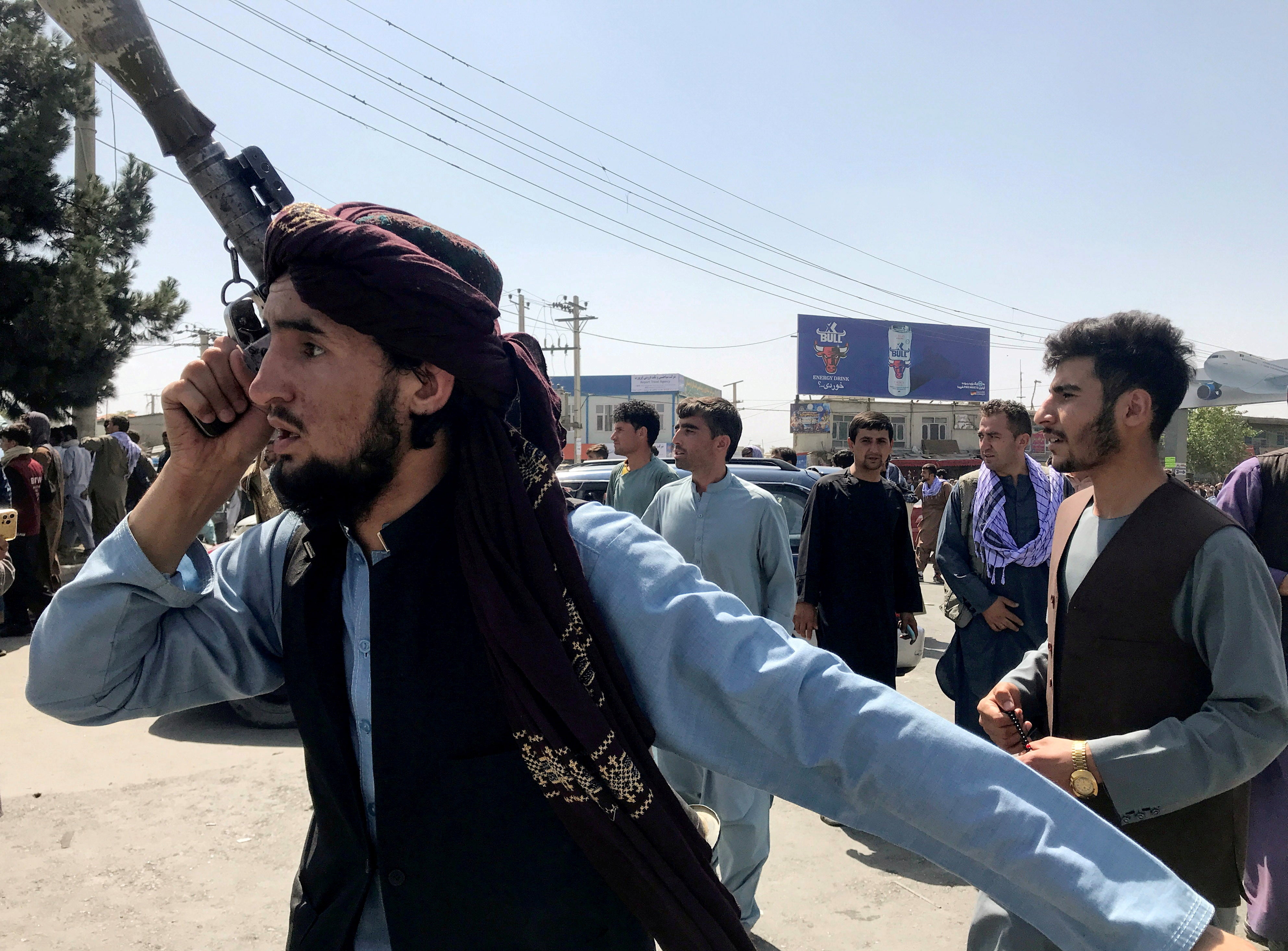Afghanistan: Mothers throw babies over airport barbed wire to British soldiers as they are beaten by Taliban
Kim Sengupta reports from Kabul airport, where the fear and hopelessness of some locals is being met by an increasingly violent response from the Taliban
Your support helps us to tell the story
From reproductive rights to climate change to Big Tech, The Independent is on the ground when the story is developing. Whether it's investigating the financials of Elon Musk's pro-Trump PAC or producing our latest documentary, 'The A Word', which shines a light on the American women fighting for reproductive rights, we know how important it is to parse out the facts from the messaging.
At such a critical moment in US history, we need reporters on the ground. Your donation allows us to keep sending journalists to speak to both sides of the story.
The Independent is trusted by Americans across the entire political spectrum. And unlike many other quality news outlets, we choose not to lock Americans out of our reporting and analysis with paywalls. We believe quality journalism should be available to everyone, paid for by those who can afford it.
Your support makes all the difference.“The mothers were desperate, they were getting beaten by the Taliban. They shouted, ‘save my baby’ and threw the babies at us, some of the babies fell on the barbed wire. It was awful what happened. By the end of the night there wasn’t one man among us who was not crying,” said the Parachute Regiment officer quietly.
The scenes of brutal violence unfolded at one of the routes into the military side of Kabul’s airport from where thousands of people, in danger from the jihadists, are being airlifted to safety by the US, Britain and other foreign governments.
The entrance to the Baron hotel, near Kabul airport, has become the focal point where Afghans seeking refuge in the UK have been gathering.
The route also leads to the facilities of other countries which are carrying out evacuations, and the numbers of those desperate to get away are swelling by the day with hope among those who qualify for the flights, but despair and anger for the ones who do not.
There is another combustible element on this narrow dusty road, strewn with rubble. Taliban fighters confront British troops from the Parachute Regiment and Special Forces, at times just a few yards apart on either side of barbed wire and a barricade of military vehicles.
Also in the sight of the jihadists are troops, including Special Forces, from the US, France, Spain, Turkey and Poland, there to collect the people who would be flying to their countries, and aware that they may be drawn into action.
A group of Talibs standing on the middle of the road, with Kalashnikov AK-47s in their hands, checked the papers of the people coming up the road, turning a few away. But apart from some angry shouts and hard stares from the fighters towards the British, there were no further hostilities after the night of strife.
Outbreaks of shooting are common. On Wednesday afternoon guards on sangars in the airport opened fire after the Talibs killed a man. There are also frequent bursts of firing in the air to disperse crowds resulting in injuries.

A Taliban checkpoint at the entrance to the road had become known for its vengeful fighters beating up Afghans, tearing up, at times, their passports and other travel documents.
It is they who are said to have started the strife on Wednesday night which got so serious at one point that warplanes were scrambled to fly low and fire chaff.
“This is what they did to me,” said Amir Akhbar Mohammed, pointing to purple bruises on both his arms and right shoulder.
“I was with my family, one of the Taliban got angry at something my wife said and started beating her with a stick. I got these injuries trying to protect her. The man was actually trying to reach around me to hit her. They seem to like hitting women,” he said.
Shahanaz Nasimi had bandages on her right leg. She had taken the precaution of wearing a black abaya to ensure that the Taliban did not think she was dressed improperly. The beating she received was, she believed, due to her going to the airport.
Ms Nahimi had arrived outside the Baron with her 23-year-old brother Shafitullah. They had made their way to Kabul after their home in Baghlan was raided by the insurgents who killed, she said, two brothers, Basitullah, 15 and 28-year-old Akhitullah.
Ms Nahimi and her brother did not appear to have visas or other documents allowing resettlement abroad. “I thought if we got here there would be a chance that one of the countries would take us,” she said. “Our family has suffered, we can show proof that the Taliban had been targeting us and they will try to hurt us again.”
To join the conversation scroll down for the comments section or click here for our most commented on articles
A number of people came to Ms Nahimi, who spoke English, to explain their cases to officials. “I hope they are alright, they all deserve to get away from here. But won’t anyone help me? I am young and I want to have a free life; that is not going to happen for me now in Afghanistan,” she said looking down to the ground.
“If we don’t get any country to take us, maybe the soldiers will turn us away from this area. That means we’ll have to go back down that road again, face the Taliban again, I can’t do that.”
The Nahimis were not the only family whose future is uncertain because of lack of paperwork. Ahmed Bellal, 19, and his father were trying to get to the US. Asadullah Bellal had worked at a US camp for 12 years and while he and his son did not have the special visas being issued by Washington, they had documentation to support their case for getting them.

The problem was that their passports had run out.
“I told my father to get them renewed, he kept on saying that he would do it, and now we have this,” said Ahmed. Asadullah gave a helpless shrug. “No one expected what has happened in the last few weeks, for the Taliban to take over so quickly. Now we are in trouble, the Taliban call us slaves of America and they will surely try to kill us.”
It is difficult to verify, it should be pointed out, all the claims of Taliban brutality. In the Islamist group’s first press conference after taking power, its spokesman, Zabihullah Mujahid, sought to present the image of a future under Taliban rule which would be much more moderate and tolerant than its predecessor two decades ago.
He pledged, among other things, that there would be no witch-hunt of those who worked for foreign governments or domestic opponents.
But it is also the case that there are groups of jihadists in the city who have been extremely aggressive, especially in the airport area. A number of foreign governments have complained about people trying to reach the airport being delayed or turned back at the checkpoints.
After a temporary halt in flights due to massive overcrowding at the airport, planes are taking off around the clock now. The US may take up to 80,000 Afghans, with 3,300 moved so far. The UK has announced that it will take around 20,000.

UNHCR, the UN refugee agency has issued a non-return advisory for Afghanistan, urging a suspension on forced returns of Afghan nationals, including asylum, seekers who have had their claims rejected.
Many British soldiers have reflected on what they had witnessed and experienced here. One, who had served in Iraq as well as being deployed previously in Afghanistan, said: “I have been around a long time, but It is very hard to watch what is going on here without being affected.
“We are not in a combat mission here so the way we can protect these people is to get them out of harm’s way as quickly as possible, we can imagine what may happen to those left behind.”
Mazhdu, 27, had turned up at the gate with her four-year-old daughter after running away from her husband, a Talib who had long been abusive towards her.
Now we are in trouble, the Taliban call us slaves of America and they will surely try to kill us
“He has always been violent but since the Taliban won he has got worse,” she said showing photographs of injuries to her face. “He thinks he has a right to beat me and he will continue to do so until I die if he finds me.”
She had spent three months recently with her cousin in Istanbul and wanted to go there.
A Turkish officer, examining her passport, pointed out that her visa had run out. He consulted a colleague but nothing could be done. As Mazhdu walked away crying, the officer shook his head: “This is such a bad situation, I feel very bad for her and her daughter, very bad.”
A British officer stepped in and, after hearing Mazhdu’s story, took her into the British lines. “We have a fair amount of latitude to make decisions out here. I can put her into the system, I don’t know if the system will spit her out, but I can do that”, he said.
As night fell crowds once again began to gather outside the British camp, as did the Taliban on the other side of the barricades and barbed wire, bringing with them menace and a sense of deep apprehension and foreboding about what lay ahead.




Join our commenting forum
Join thought-provoking conversations, follow other Independent readers and see their replies
Comments